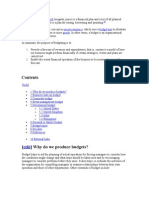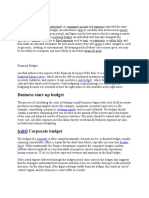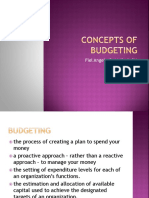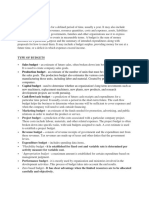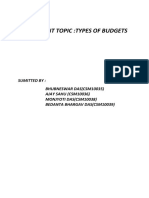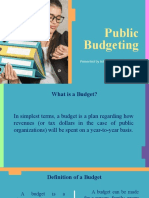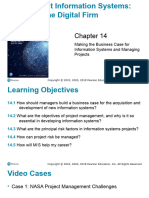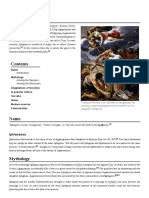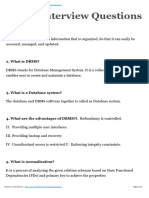0% found this document useful (0 votes)
13 views3 pagesBudget Assignment
A budget is a financial plan detailing expected revenues and expenditures, serving as a tool for effective resource allocation and financial control. It plays a crucial role in planning, performance evaluation, and debt management, with five types including operating, capital, cash, zero-based, and flexible budgets. The National Assembly is involved in the budget-making process through approval, oversight, amendments, enacting related laws, and monitoring execution.
Uploaded by
Great MindsCopyright
© © All Rights Reserved
We take content rights seriously. If you suspect this is your content, claim it here.
Available Formats
Download as DOCX, PDF, TXT or read online on Scribd
0% found this document useful (0 votes)
13 views3 pagesBudget Assignment
A budget is a financial plan detailing expected revenues and expenditures, serving as a tool for effective resource allocation and financial control. It plays a crucial role in planning, performance evaluation, and debt management, with five types including operating, capital, cash, zero-based, and flexible budgets. The National Assembly is involved in the budget-making process through approval, oversight, amendments, enacting related laws, and monitoring execution.
Uploaded by
Great MindsCopyright
© © All Rights Reserved
We take content rights seriously. If you suspect this is your content, claim it here.
Available Formats
Download as DOCX, PDF, TXT or read online on Scribd
/ 3




